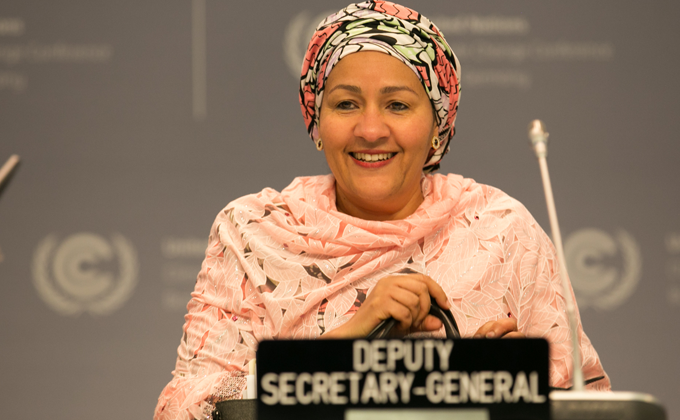The Women’s Empowerment Principles (WEPs) are a set of Principles offering guidance to business on how to advance gender equality and women’s empowerment in the workplace, marketplace and community. Established by UN Women and UN Global Compact, the WEPs are informed by international labour and human rights standards and grounded in the recognition that businesses have a stake in, and a responsibility for, gender equality and women’s empowerment.
WEPs are a primary vehicle for corporate delivery on gender equality dimensions of the 2030 agenda and the United Nations Sustainable Development Goals. By joining the WEPs community, the CEO signals commitment to this agenda at the highest levels of the company and to work collaboratively in multistakeholder networks to foster business practices that empower women. These include equal pay for work of equal value, gender-responsive supply chain practices and zero tolerance against sexual harassment in the workplace.
Find answers to several FAQs here.
Adopting the WEPs is a continuous journey of six main stages. The Journey guides WEPs signatories through: (1) gathering internal support for signing the WEPs (Consider), (2) collecting information required for a signature (Sign), (3) showing the company commitment to gender equality on the company profile page (EN, JP) and activating internal stakeholders with the help of industry-specific practices and recommendations (Activate), (4) engaging external stakeholders through the value chain (Engage), (5) gathering data against the WEPs Transparency and Accountability Framework (Sustain), and (6) reporting on eight key performance indicators on their WEPs company profile pages (Report). More information about the WEPs Journey can be found in the WEPs Brochure.

WEPs TOOLKIT
Your tools for advancing gender equality in the workplace, marketplace & community
 Leaders Insights
Leaders Insights  Ally Insight
Ally Insight  Action in Crisis
Action in Crisis  Public Policies
Public Policies  Transparency and
Transparency andaccountablity
 All about WEPs
All about WEPs  FAQ | How-to's
FAQ | How-to's  Signatories in Action
Signatories in Action  Templates
Templates  Multimedia
Multimedia  WEPs Learn
WEPs Learn 

“We look at the private sector to generate innovation, employment and financing that can bridge the gender gaps in the world of work and advance the Sustainable Development Goals. This will help our women, families and communities, and it is certainly good for the bottom line in business. Companies that invest in women and support women’s leadership and decision-making, and commit to gender equality typically outperform their competitors. The Women’s Empowerment Principles offer a great platform for change.”
Amina Mohammed, United Nations Deputy Secretary-General at the 2018 WEPs Forum
